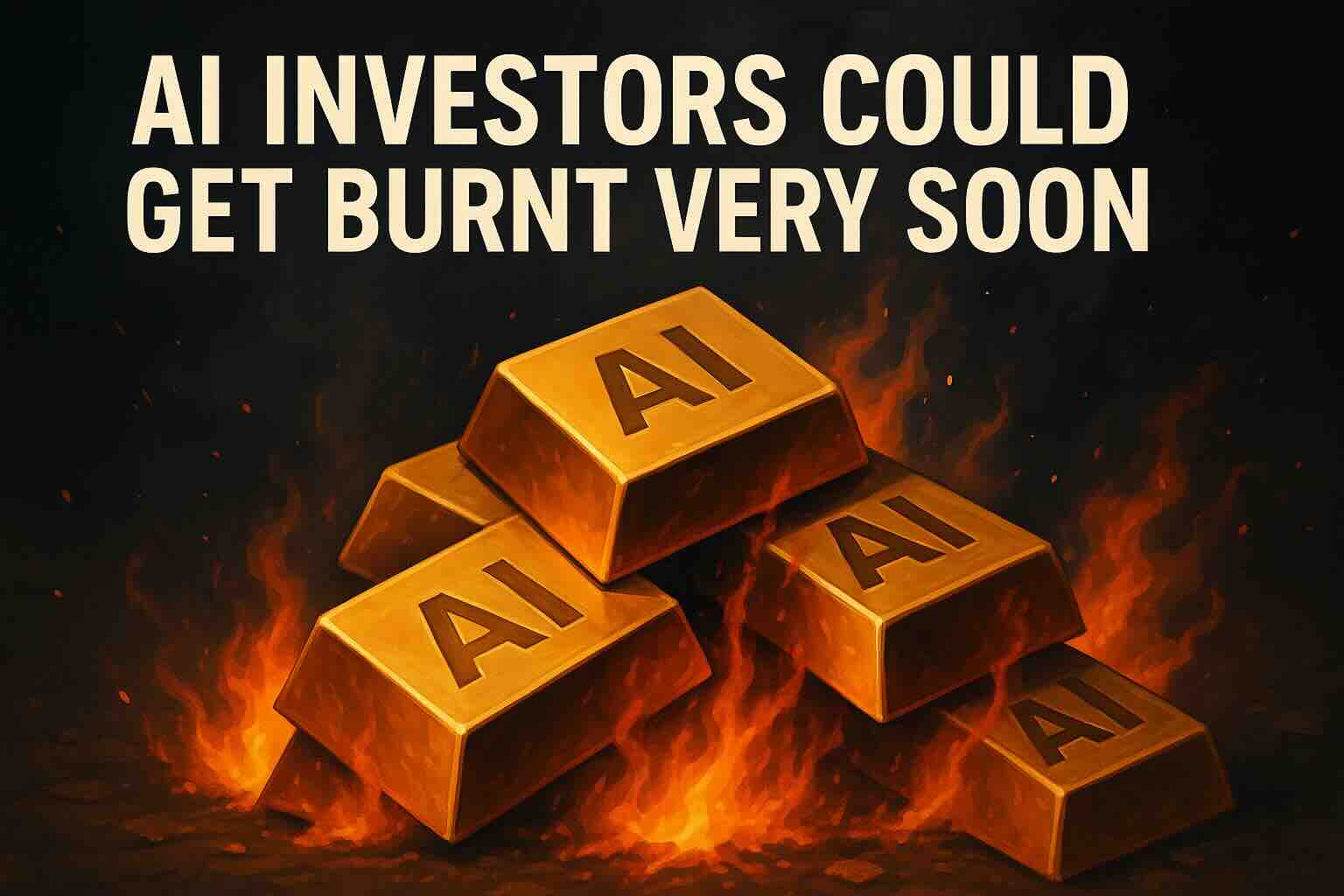
AI Investors Could Get Burnt Very Soon
There’s a storm brewing beneath the glitter of artificial intelligence. Everywhere you look, startups are adding “.ai” to their names, valuations are soaring, and investors are pouring money into anything that mentions “models,” “agents,” or “autonomous.”
But this frenzy feels eerily familiar. Every tech revolution starts with a boom, then a reckoning. And AI’s reckoning might arrive sooner than most expect.
1. The Mirage of “AI-Powered Everything”
Too many startups are labeling themselves “AI companies” when they’re barely scratching the surface of automation. This AI washing has turned into a game of smoke and mirrors — spreadsheets with buzzwords, prototypes that don’t scale, and founders who barely understand their own stack.
When reality fails to match the pitch deck, the correction will be brutal.
2. The Black Box Problem
Even genuine AI breakthroughs have a dark side — opacity. Models that can’t explain their decisions are risky to deploy at scale. When these systems make a wrong call, it’s hard to know why.
Investors love the promise of “magic,” but magic doesn’t build sustainable businesses.
3. Regulation Is Coming — and It Won’t Be Gentle
AI is entering the phase where regulators are waking up. From Europe to the U.S. to India, governments are drafting rules to control data use, bias, and liability.
That means startups built on shaky compliance or public data scraping could face lawsuits, fines, or bans overnight. Entire portfolios could vaporize if policy winds shift the wrong way.
4. Profitability Still Hasn’t Arrived
For all the talk about AI changing the world, very few companies are actually making money from it. Training, inference, and compute costs are enormous, and the ROI cycle is long.
Most “AI-first” startups are spending millions to save thousands — and investors are beginning to notice.
5. Dependency on a Few Giants
Every AI startup today relies on a handful of foundational players for compute, data, and APIs. A pricing change or outage from OpenAI, Anthropic, or Google could paralyze hundreds of dependent businesses.
When too much innovation sits on a single vendor’s infrastructure, it’s not innovation — it’s fragility disguised as scale.
6. The Coming Backlash
AI’s environmental footprint, fake content explosion, and workforce disruption are all becoming public debates. Once the hype cools, the spotlight will turn to accountability.
And when that happens, investors will realize many of their “moonshots” were just shooting stars.
The Smart Money Is Already Quiet
Real investors — the ones who’ve lived through the dot-com crash and crypto collapse — know what’s coming. They’re studying balance sheets, not demos. They’re asking, “What real business does this solve?” not “How big is your model?”
Because when the dust settles, only real businesses will remain standing.
At Yori, we’ve built our philosophy around that truth — AI is a tool, not a business model. The ones who remember that will survive the crash ahead.